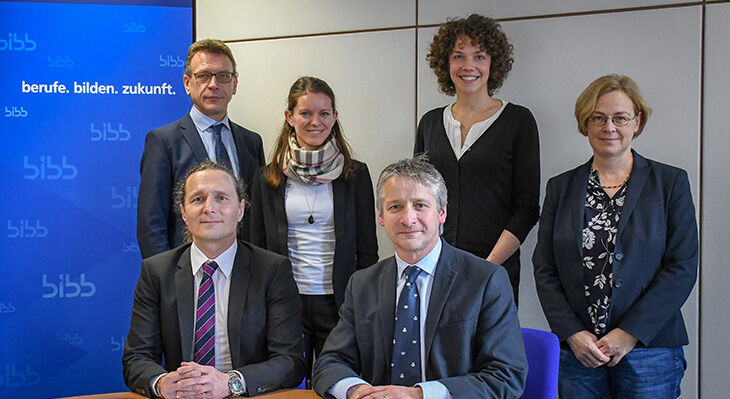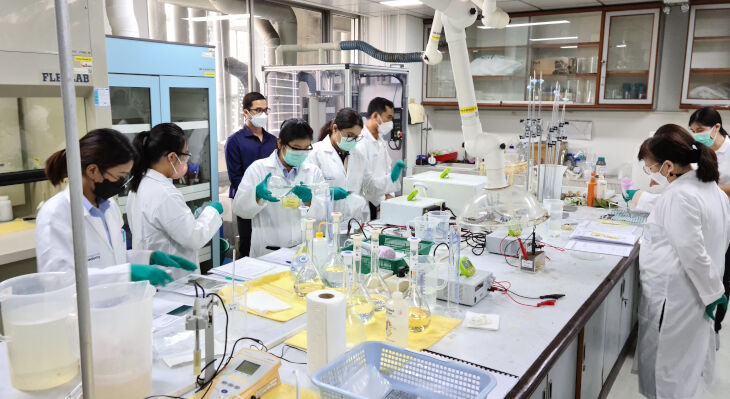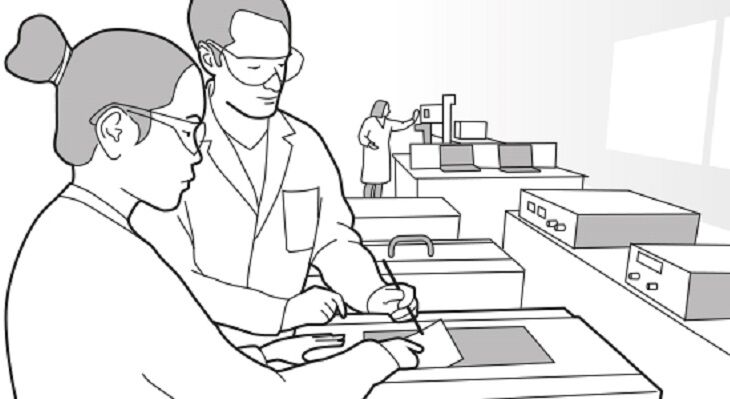Cooperation project responds to the need for skilled workers in the Thai electroplating industry
In the context of the SCHOOLPLATE project, the Federal Institute for Vocational Education and Training (BIBB) and the Fraunhofer Institute for Manufacturing Engineering and Automation IPA will support the Thai electroplating industry in developing suitable VET measures. The project partners signed the cooperation agreement on 29 January 2020.

Thailand is an important base of the globally active electroplating industry: The industry, consisting predominantly of small and medium-sized companies, is an important provider for German companies and continues to face increasing demand. Skilled workers with broad interdisciplinary expertise and methodological competence in the fields of chemistry, materials and process engineering as well as mechanical and plant engineering are a decisive factor in ensuring the quality of electroplating processes.
At present, however, no suitable TVET programmes exist in Thailand that provide the necessary basics for a skilled occupation in the electroplating industry. This has far-reaching consequences: "The shortcomings resulting from a lack of know-how not only have consequences for the quality of the products at the expense of the end users, but also for the environment. In particular, the requirements here include knowledge for the proper treatment of wastewater and the energy-efficient operation of electroplating plants," Dr.-Ing. Martin Metzner and Dipl.-Ing. (FH) Klaus Schmid from the Electroplating Department of Fraunhofer IPA explained during the project kick-off meeting on 29 and 30 January in Bonn. BIBB Research Director Prof. Dr. Hubert Ertl opened the meeting.
Developing suitable TVET measures with SCHOOLPLATE
Hence, project "Exploration of TVET measures for electroplating in Thailand (SCHOOLPLATE)," funded by the Federal Ministry of Education and Research (BMBF), responds to the demand for skilled workers as formulated by the Thai industry. The overall objective is to develop suitable training and qualification measures for the electroplating industry in Thailand in cooperation with Thai project partners and to mainstream them in the national TVET system.
During this period, the project concept for the development and piloting of further training courses for the Thai electroplating industry, which was drawn up during the exploratory phase, is to be implemented. Furthermore, in cooperation with the Thai Ministry of Education, training courses for vocational school personnel are to be developed in order to improve the quality of school-based vocational training courses in the field of electroplating technology in the medium term.
BIBB already cooperated with the Office of the Vocational Education Commission at the Ministry of Education (OVEC) and the Thailand Professional Qualification Institute (TPQI) on TVET-related topics from 2003 - 2018.
(as of December 2021)
For what is electroplating technology used?
Electroplating products have become an indispensable part of everyday life: examples of objects that have been further refined using electrochemical plating technology are bathroom and kitchen fittings, window and door handles, silver-plated cutlery, as well as gold- or silver-plated watches and fashion jewellery, or even the shiny trim on a ballpoint pen.
Galvanized surfaces are also used in all branches of industry: In the automotive industry, for example, hundreds of coated metal and plastic components are used per car to protect them from wear and tear and to ensure a good appearance (e.g. the controls inside the car). In the aerospace industry, electroplating processes play a decisive role in ensuring the resistance of surfaces despite extreme conditions. Finally, in the electronics industry, printed circuit boards, which are indispensable for computers, mobile phones and almost all other electronic products, only acquire their functionality by means of special electroplating techniques.

